"While dictators rage and statesmen talk, all Europe dances — to The Lambeth Walk."
Monday 25 May 2009
Asylum Airways
The Telegraph ran a very good article over the weekend about Britain's deportation flights.
It was news to me that anyone gets deported at all - but the UK Border Agency has removed 12,000 failed asylum seekers and foreign criminals over the past seven years.
They use special charter flights, which cost £250,000 per trip and leave up to 60 times a year.
The sad thing is that clearly the numbers removed are a drop in the ocean compared to the numbers who arrive and stay. The Government now attempts to remove anyone from a non-EU country who commits a crime which warrants a sentence of more than one year in prison as a matter of policy.
Often their efforts are frustrated by red tape and their own human rights legislation.
Another headache looms on the horizon, however; the article below deals mainly with violent criminals from Albania and Kosovo. At the end of April, Albania applied to join the European Union - this will mean that efforts to remove the many Albanians who will arrive here to commit crime will be null and void.
Alasdair Palmer reports from one of the flights in question:
I am sitting on a plane with murderers, robbers and people who have committed various kinds of sex crimes. The atmosphere is not particularly threatening – but this might be because muscular security guards outnumber passengers. At the moment, they're all sitting peacefully together, a great relief when you're 30,000 feet up and not comfortable with the thought of a fight breaking out.
We are heading to the Balkans: first to Pristina in Kosovo and then on to Tirana in Albania. The flight is a charter organised and paid for by the UK Border Agency, a branch of the Home Office, and it is taking 30 Kosovans and Albanians home. They are not going voluntarily; they are being forcibly deported.
Deporting foreign prisoners convicted of serious crimes after they have served their sentences has been an important part of government policy since 2006 when Charles Clarke, then home secretary, was sacked after it was revealed that hundreds of foreign prisoners, some convicted of very serious crimes, had been released... and no one knew where they were.
Mr Clarke's successors have been eager to ensure they do not suffer the same fate, which may be one reason why Britain deported a record number – 5,400 foreign prisoners in total – last year. Since August 2008, anyone who is not a citizen of an EU nation, and who is given a custodial sentence in Britain of 12 months or more, is automatically considered for deportation.
These chartered planes fly at least once a week and have several destinations, including Jamaica, Azerbaijan (which is used for Afghans), Pakistan and various nations in Africa and the Far East.
But convicted criminals aren't the only passengers. The Border Agency also deports immigrants whose claims to settle in Britain have been rejected – failed asylum seekers and illegal entrants of all kinds – but who refuse to return home voluntarily.
The flights cost at least £250,000 a time, an indication of the priority they are given within the Government, but surprisingly few people know about them. I am the first journalist, or indeed member of the public, to be allowed on one.
My flight leaves Stansted at 9.30am on the dot. Before the detainees board, one of the security guards suggests I might want to move away from the aisle to a seat by the window. There have been a couple of cases where the prisoners have lashed out and those sitting in the aisle seats injured. And there is a mentally disturbed prisoner on this flight and he has threatened to cause trouble…
I swiftly move to a window seat.
A coach arrives on the tarmac. One by one, those slated for deportation are marched up the steps on to the plane. Each is accompanied by three security guards, and all of the passengers board peacefully. They don't look like criminals; instead, they look extremely young, thin and pathetic. Their crimes, however, include murder, rape and robbery.
One frail individual has been convicted of managing a brothel. On his arrest, he had claimed asylum, and when his claim was rejected he said he would be tortured if he was returned to Albania. That claim was also rejected. And so here he is. He's not happy to be going back to Albania, but doesn't try fighting the security officers.
I ask one of the guards if there is usually trouble between Albanians and Kosovans. "Not really," he replies. "We can chat to them, particularly the Albanians, about Norman Wisdom – he's an incredible hero there. Don't ask me why but when England played football in Albania, Norman Wisdom got a bigger reception than David Beckham. It's a lot harder to lash out at someone if you have had a chat with them first. That's why we try to establish a rapport."
It's a strategy that seems to work. On this flight, the guards aren't even using handcuffs.
"The Government started using charter flights in 2001," explains David Wood, strategic director for the UK Border Agency, who sits beside me for most of the flight. "It was a response to the fact that some of those being deported realised that if they made a big enough fuss at the airport – if they took off their clothes, for instance, or started biting and spitting – they could delay the process. We found that pilots would then refuse to take the person on the grounds that other passengers would object. So although we still use scheduled flights, we use special flights for individuals who are difficult to remove and might cause trouble."
There are more than 60 such flights a year. Some 12,000 foreign prisoners and would-be immigrants have been transported back to their countries on charter flights over the past seven years.
"You will have noticed," Mr Wood continues, "that, as a proportion of the total of immigrants whose claims to stay in the UK are rejected, 12,000 is not a huge number."
I had indeed noticed that fact: there is a backlog of more than 250,000 asylum cases alone, and every year there are tens of thousands of people who arrive here who, were the law strictly enforced, would have to be deported.
"But the effect of the charter flights is actually much greater than the numbers themselves might suggest," he continues. "It sends out a very clear signal that Britain is determined to enforce its immigration policy. And that has an important impact on deterring people who do not comply with our rules or who are not entitled to be here from attempting to stay, because they see that we will succeed in removing them."
The statistics seem to back up his point. The number of Albanians claiming asylum, for instance, is now around one tenth of what it was in 2001: 1,065 Albanians claimed asylum in Britain in 2001; 155 did in 2008. The numbers being deported – or deciding to return voluntarily – has also steadily risen from 530 in 2001 to nearly 1,000 in 2008.
Deportation does not necessarily stop those who are deported from finding their way back to Britain. Illir Venhari, who has served as a translator on flights to Kosovo and Albania for more than five years, says it is not uncommon for him to discover he has met one of the deportees on a charter flight before.
"Some are determined to return to Britain," explains Mr Venhari. "Once they have been taken back to Kosovo or Albania, straight away they start working out how to come back. They travel across continental Europe by lorry, then hide in it when it crosses on a ferry to Britain. I met one guy who did this five times."
"We do get the occasional individual who we pick up and deport a second time," agrees Mr Wood,
"but there have only been a handful of individuals who have been deported more than once. It is rarer now as our borders have been significantly strengthened."
So what attracts people to Britain? "As far as Albanians are concerned, it is because they are treated better here than in most of Europe, where they are thought to be Romany [gipsies] and there is a lot of prejudice against them," explains Mr Venhari. "Also, Kosovo and Albania are very poor and very corrupt. You can earn a lot more in Britain and you will not have it taken from you by corrupt officials."
"The English language is also a great asset," adds Mr Wood. "The chance of learning it here attracts a lot of people, some of whom will go back to their own countries, because once they can speak English they have a much better chance of earning a living in their homelands."
We arrive at Pristina airport, Kosovo and a group of scrawny deportees are escorted off. One by one, they are processed by Kosovo's immigration authorities, who check their papers. Those who don't have passports have been issued with a "letter of identification" by the UK government.
"It's based on the best information we have about who they are," says Mr Wood. "I don't claim it's always 100 per cent accurate. We had one guy who had 54 aliases. We went through every one of his phoney names and it was impossible to be certain which was his real one – if any. But we take fingerprints so we can identify him if he tries to enter the UK again."
Our next stop is Tirana in Albania. Just before we start our descent, there's a disturbance. Prisoners should be given £46 on release from a British jail and one of the passengers is complaining that he has not received the money. His claim is checked and discovered to be accurate: there had been an oversight. The security guards take pity on him and have a whip-round. They give him £30. It delights him so much that he seems almost pleased to be back in Albania.
After landing at Tirana, the same process takes place, the only difference being that the Albanian authorities appear much less bothered about the paperwork. The deportees simply get off the plane and walk away. "Some will be back, I guarantee you," whispers Mr Venhari.
He may be right. On the other hand, there is no doubt that the deportation flights are a sign that the Government is finally trying to enforce its laws on immigration – something that, for at least its first four years in power, Labour seemed extremely reluctant to do. Charter flights are, of course, not going to be enough to stop people from desperate countries trying to settle in Britain in the hope of a better life. But they do get rid of a lot of illegal immigrants who have been convicted of serious crimes.
And for that, if nothing else, those flights are surely worth it.
It was news to me that anyone gets deported at all - but the UK Border Agency has removed 12,000 failed asylum seekers and foreign criminals over the past seven years.
They use special charter flights, which cost £250,000 per trip and leave up to 60 times a year.
The sad thing is that clearly the numbers removed are a drop in the ocean compared to the numbers who arrive and stay. The Government now attempts to remove anyone from a non-EU country who commits a crime which warrants a sentence of more than one year in prison as a matter of policy.
Often their efforts are frustrated by red tape and their own human rights legislation.
Another headache looms on the horizon, however; the article below deals mainly with violent criminals from Albania and Kosovo. At the end of April, Albania applied to join the European Union - this will mean that efforts to remove the many Albanians who will arrive here to commit crime will be null and void.
Alasdair Palmer reports from one of the flights in question:
I am sitting on a plane with murderers, robbers and people who have committed various kinds of sex crimes. The atmosphere is not particularly threatening – but this might be because muscular security guards outnumber passengers. At the moment, they're all sitting peacefully together, a great relief when you're 30,000 feet up and not comfortable with the thought of a fight breaking out.
We are heading to the Balkans: first to Pristina in Kosovo and then on to Tirana in Albania. The flight is a charter organised and paid for by the UK Border Agency, a branch of the Home Office, and it is taking 30 Kosovans and Albanians home. They are not going voluntarily; they are being forcibly deported.
Deporting foreign prisoners convicted of serious crimes after they have served their sentences has been an important part of government policy since 2006 when Charles Clarke, then home secretary, was sacked after it was revealed that hundreds of foreign prisoners, some convicted of very serious crimes, had been released... and no one knew where they were.
Mr Clarke's successors have been eager to ensure they do not suffer the same fate, which may be one reason why Britain deported a record number – 5,400 foreign prisoners in total – last year. Since August 2008, anyone who is not a citizen of an EU nation, and who is given a custodial sentence in Britain of 12 months or more, is automatically considered for deportation.
These chartered planes fly at least once a week and have several destinations, including Jamaica, Azerbaijan (which is used for Afghans), Pakistan and various nations in Africa and the Far East.
But convicted criminals aren't the only passengers. The Border Agency also deports immigrants whose claims to settle in Britain have been rejected – failed asylum seekers and illegal entrants of all kinds – but who refuse to return home voluntarily.
The flights cost at least £250,000 a time, an indication of the priority they are given within the Government, but surprisingly few people know about them. I am the first journalist, or indeed member of the public, to be allowed on one.
My flight leaves Stansted at 9.30am on the dot. Before the detainees board, one of the security guards suggests I might want to move away from the aisle to a seat by the window. There have been a couple of cases where the prisoners have lashed out and those sitting in the aisle seats injured. And there is a mentally disturbed prisoner on this flight and he has threatened to cause trouble…
I swiftly move to a window seat.
A coach arrives on the tarmac. One by one, those slated for deportation are marched up the steps on to the plane. Each is accompanied by three security guards, and all of the passengers board peacefully. They don't look like criminals; instead, they look extremely young, thin and pathetic. Their crimes, however, include murder, rape and robbery.
One frail individual has been convicted of managing a brothel. On his arrest, he had claimed asylum, and when his claim was rejected he said he would be tortured if he was returned to Albania. That claim was also rejected. And so here he is. He's not happy to be going back to Albania, but doesn't try fighting the security officers.
I ask one of the guards if there is usually trouble between Albanians and Kosovans. "Not really," he replies. "We can chat to them, particularly the Albanians, about Norman Wisdom – he's an incredible hero there. Don't ask me why but when England played football in Albania, Norman Wisdom got a bigger reception than David Beckham. It's a lot harder to lash out at someone if you have had a chat with them first. That's why we try to establish a rapport."
It's a strategy that seems to work. On this flight, the guards aren't even using handcuffs.
"The Government started using charter flights in 2001," explains David Wood, strategic director for the UK Border Agency, who sits beside me for most of the flight. "It was a response to the fact that some of those being deported realised that if they made a big enough fuss at the airport – if they took off their clothes, for instance, or started biting and spitting – they could delay the process. We found that pilots would then refuse to take the person on the grounds that other passengers would object. So although we still use scheduled flights, we use special flights for individuals who are difficult to remove and might cause trouble."
There are more than 60 such flights a year. Some 12,000 foreign prisoners and would-be immigrants have been transported back to their countries on charter flights over the past seven years.
"You will have noticed," Mr Wood continues, "that, as a proportion of the total of immigrants whose claims to stay in the UK are rejected, 12,000 is not a huge number."
I had indeed noticed that fact: there is a backlog of more than 250,000 asylum cases alone, and every year there are tens of thousands of people who arrive here who, were the law strictly enforced, would have to be deported.
"But the effect of the charter flights is actually much greater than the numbers themselves might suggest," he continues. "It sends out a very clear signal that Britain is determined to enforce its immigration policy. And that has an important impact on deterring people who do not comply with our rules or who are not entitled to be here from attempting to stay, because they see that we will succeed in removing them."
The statistics seem to back up his point. The number of Albanians claiming asylum, for instance, is now around one tenth of what it was in 2001: 1,065 Albanians claimed asylum in Britain in 2001; 155 did in 2008. The numbers being deported – or deciding to return voluntarily – has also steadily risen from 530 in 2001 to nearly 1,000 in 2008.
Deportation does not necessarily stop those who are deported from finding their way back to Britain. Illir Venhari, who has served as a translator on flights to Kosovo and Albania for more than five years, says it is not uncommon for him to discover he has met one of the deportees on a charter flight before.
"Some are determined to return to Britain," explains Mr Venhari. "Once they have been taken back to Kosovo or Albania, straight away they start working out how to come back. They travel across continental Europe by lorry, then hide in it when it crosses on a ferry to Britain. I met one guy who did this five times."
"We do get the occasional individual who we pick up and deport a second time," agrees Mr Wood,
"but there have only been a handful of individuals who have been deported more than once. It is rarer now as our borders have been significantly strengthened."
So what attracts people to Britain? "As far as Albanians are concerned, it is because they are treated better here than in most of Europe, where they are thought to be Romany [gipsies] and there is a lot of prejudice against them," explains Mr Venhari. "Also, Kosovo and Albania are very poor and very corrupt. You can earn a lot more in Britain and you will not have it taken from you by corrupt officials."
"The English language is also a great asset," adds Mr Wood. "The chance of learning it here attracts a lot of people, some of whom will go back to their own countries, because once they can speak English they have a much better chance of earning a living in their homelands."
We arrive at Pristina airport, Kosovo and a group of scrawny deportees are escorted off. One by one, they are processed by Kosovo's immigration authorities, who check their papers. Those who don't have passports have been issued with a "letter of identification" by the UK government.
"It's based on the best information we have about who they are," says Mr Wood. "I don't claim it's always 100 per cent accurate. We had one guy who had 54 aliases. We went through every one of his phoney names and it was impossible to be certain which was his real one – if any. But we take fingerprints so we can identify him if he tries to enter the UK again."
Our next stop is Tirana in Albania. Just before we start our descent, there's a disturbance. Prisoners should be given £46 on release from a British jail and one of the passengers is complaining that he has not received the money. His claim is checked and discovered to be accurate: there had been an oversight. The security guards take pity on him and have a whip-round. They give him £30. It delights him so much that he seems almost pleased to be back in Albania.
After landing at Tirana, the same process takes place, the only difference being that the Albanian authorities appear much less bothered about the paperwork. The deportees simply get off the plane and walk away. "Some will be back, I guarantee you," whispers Mr Venhari.
He may be right. On the other hand, there is no doubt that the deportation flights are a sign that the Government is finally trying to enforce its laws on immigration – something that, for at least its first four years in power, Labour seemed extremely reluctant to do. Charter flights are, of course, not going to be enough to stop people from desperate countries trying to settle in Britain in the hope of a better life. But they do get rid of a lot of illegal immigrants who have been convicted of serious crimes.
And for that, if nothing else, those flights are surely worth it.
Subscribe to:
Post Comments (Atom)
.jpg)







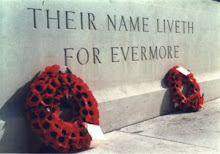












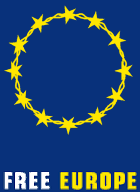





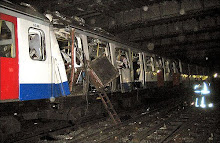





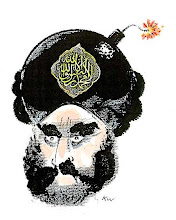





















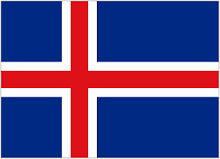























2 comments:
This is the best news I have read today. Money well spent!
If they must be flown out, then first put them on road gangs and let them repair the highways for 6 months to earn their ticket out. Cleaning parks or various other public works could also be used. They need to be accountable for the cost of their deportation. There is no reason for the public to pick up this cost. While they are "saving up the cost of their ticket" their incarceration cost should be deducted so that the public does not bear that expense either. This is just plain rediculous!
Post a Comment